1. Apple Cider Vinegar
You Will Need
- 1-2 tablespoons apple cider vinegar
- A glass of cold water
What You Have To Do
- Make a solution of the vinegar and water.
- Use this as a mouthwash. Gargle for 3-5 minutes.
- Rinse your mouth with plain water.
How Often You Should Do This
Do this in the morning and also before going to bed.Why This Works
Apple cider vinegar has antibacterial properties that help greatly in reducing halitosis. It restores the pH balance in the mouth (1).2. Activated Charcoal
You Will Need
- 1/2 teaspoon activated charcoal
- Toothbrush
What You Have To Do
- Brush your teeth with activated charcoal.
- Rinse your mouth thoroughly to remove all the charcoal.
How Often You Should Do This
Use activated charcoal 2-3 times a week until the bad breath problem is cured.Why This Works
Activated charcoal absorbs the impurities in your mouth and kills harmful bacteria. It is also good for whitening your teeth (2).3. Gum
4. Coconut Oil
You Will Need
1 tablespoon virgin coconut oilWhat You Have To Do
- Swish coconut oil around in your mouth for 5-10 minutes and then spit it out.
- Use lukewarm water to rinse your mouth after this.
How Often You Should Do This
Repeat this every day until the bad breath is gone.Why This Works
Coconut oil swishing is a popular technique used to keep the mouth healthy and bacteria-free. This oil has anti-inflammatory and antimicrobial properties (3).5. Epsom Salt
You Will Need
- 1 teaspoon Epsom salt
- A glass of lukewarm water
What You Have To Do
Mix the salt in the water and gargle with this.How Often You Should Do This
Do this every day initially. After a while, do it every alternate day.Why This Works
When it comes to toxin removal, Epsom salt is the most remarkable ingredient. It also has natural antibacterial properties that fight oral bacteria and eliminate odor in the mouth (4).6. Eucalyptus Oil
You Will Need
- 1 cup water
- 2-3 drops eucalyptus oil
What You Have To Do
- Gargle with a mixture of the essential oil and water.
- Rinse your mouth with plain water.
How Often You Should Do This
Repeat this once every day until you get relief.Why This Works
Eucalyptus oil exerts a bactericidal effect on different types of bacteria. It also has anti-inflammatory and analgesic properties that will alleviate any pain or swelling present in your mouth (5).7. Fennel Seeds
You Will Need
1 teaspoon fennel seedsWhat You Have To Do
Chew on the fennel seeds and ingest them.How Often You Should Do This
Use this remedy as and when required.Why This Works
An intrinsic part of Indian culinary culture, fennel is effective in resolving halitosis issues very effectively. It freshens your breath and also takes care of any infections that may be causing bad breath (6).8. Ginger
You Will Need
- 1 teaspoon ginger juice
- A glass of warm water
What You Have To Do
- Grate and squeeze the ginger root to extract fresh juice.
- Add this juice to warm water and rinse your mouth with it.
How Often You Should Do This
Do this after your meals initially, and then, once every few days to keep bad breath at bay.Why This Works
The antimicrobial properties of ginger help to eliminate bad odor as well as different types of oral and throat infections (7).9. Green Tea
You Will Need
- 1 green tea bag
- A cup of hot water
- Honey (to taste)
What You Have To Do
- Steep the tea bag for a few minutes and then remove it.
- Add honey to taste and sip on this tea.
How Often You Should Do This
Have 1-3 cups of green tea every day.Why This Works
Having green tea early in the morning instead of tea or coffee with milk can take you a long way in your war against halitosis. The phytochemicals in green tea are naturally antibacterial and will wash away and eliminate the odor-causing bacteria (8).10. Grapefruit Seed Extract
You Will Need
1-2 drops grapefruit seed extractWhat You Have To Do
- Brush your teeth as usual.
- Put the grapefruit seed extract on your toothbrush and gently rub it on your teeth.
- Rinse your teeth with clean water.
How Often You Should Do This
Repeat this every day, and you will notice a difference in a week.Why This Works
This citrus extract deodorizes the mouth and also eliminates any bacteria that may be growing in there (9).11. Parsley
You Will Need
A few fresh parsley leavesWhat You Have To Do
Chew the fresh leaves directly or add them as a garnish on your food.How Often You Should Do This
Include parsley in your regular diet.Why This Works
Parsley not only makes digestion effective and easy, but it is also a good home remedy for halitosis. The chlorophyll in parsley acts as an antibacterial and helps in eliminating the odor-causing bacteria from the mouth and the throat (10).12. Lemon Juice And Yogurt
You Will Need
- 1 teaspoon lemon juice
- 1-2 tablespoons plain yogurt
What You Have To Do
- Mix the two ingredients and apply the mixture on your teeth.
- Leave it on for 5-7 minutes and then rinse your mouth.
How Often You Should Do This
Use this remedy as and when required.Why This Works
Lemon juice is antibacterial in nature and will remove the odor-causing bacteria (11). The good bacteria present in yogurt will restore the balance in the natural flora of your oral cavity (12).13. Baking Soda And Lemon Juice
You Will Need
- 1 teaspoon baking soda
- 1/2 teaspoon lemon juice
What You Have To Do
- Mix the ingredients to get a coarse paste. Gently rub this paste on your teeth.
- Leave it on for a minute and then rinse your mouth with clean water.
How Often You Should Do This
Repeat this once a week.Why This Works
Baking soda balances the pH levels in the mouth and brings down the acidity as it is a natural antacid (13). Along with the antibacterial properties of lemon juice, this remedy makes for a potent combination to remove bad breath.Caution
Do not use this remedy too often as excessive use of baking soda can damage the tooth enamel.14. Salt Water
You Will Need
- 1 teaspoon table salt
- A glass of lukewarm water
What You Have To Do
Make some salt water with the ingredients and use it as a gargle.How Often You Should Do This
Repeat this once or twice a day.Why This Works
Salt water solution neutralizes the mouth’s pH and cleanses it as well (14). It is also antimicrobial in nature (15).15. Sesame Oil
You Will Need
- 1 tablespoon sesame oil
- Lukewarm water
What You Have To Do
- Swish the oil around in your mouth for a few minutes.
- Spit it out and gargle with lukewarm water.
How Often You Should Do This
Do this every day in the morning.Why This Works
Like coconut oil, sesame oil thoroughly cleanses your mouth and improves dental health. An added benefit of using this remedy is that sesame oil also whitens your teeth (16).16. Tea Tree Oil
You Will Need
- 1-2 drops tea tree oil
- A glass of tepid water
What You Have To Do
- Add tea tree oil to the water.
- Gargle with this solution for 3-5 minutes.
How Often You Should Do This
Repeat this every day until the bad breath is gone.Why This Works
Tea tree oil is a powerful antioxidant and antibacterial agent. It works against different types of bacteria and kills them (17).17. Guava
You Will Need
Unripe guavaWhat You Have To Do
Eat this fruit anytime during the day. You can also cut it into pieces and sprinkle some salt and black pepper powder on it for flavor.How Often You Should Do This
Eat guavas a few times during the week.Why This Works
Loaded with vitamin C, tannic acid, malic acid, and oxalate, guava is an apt remedy for bleeding and diseased gums, bad breath, and sensitive teeth. Chew on this wonder fruit to improve your overall oral health (18).18. Cardamom
You Will Need
1 cardamom podWhat You Have To Do
- Chew on the pod as a whole or peel the pod and chew on the seeds present inside.
- You can ingest the chewed on pod.
How Often You Should Do This
Whenever you have had a meal with garlic and onions or any other food item that has a strong odor, pop a cardamom pod into your mouth after the meal.Why This Works
Cardamom has been used since forever in India after meals. It acts as an aromatic freshener for your mouth and reduces bad breath by acting as a deodorizer. It masks the bad odor with its fragrance (19).19. Hydrogen Peroxide
You Will Need
- 1 tablespoon 3% hydrogen peroxide solution
- 1/2 cup water
What You Have To Do
- Dilute the hydrogen peroxide in water and rinse your mouth with this solution.
- Gently brush your teeth, gums, and tongue to remove all residue.
- Rinse your mouth with plain water.
How Often You Should Do This
Do this in the mornings after brushing your teeth. Use it intermittently through the week for best results.Why This Works
Hydrogen peroxide is a potent antimicrobial solution that can easily get rid of bad breath caused by bacteria (20).Caution
Do not use this remedy repetitively every day as hydrogen peroxide can damage the teeth and gums on excessive exposure.20. Cinnamon
You Will Need
- 1/2 tablespoon cinnamon powder
- 1-2 tablespoons honey (preferably Manuka honey)
- 2 lemons
- A cup of hot water
What You Have To Do
- Pour fresh juice squeezed out from the lemons in an airtight container.
- To this, add the cinnamon powder and honey.
- Pour the hot water over this, close the lid, and shake well to mix all the ingredients.
- Use 1-2 tablespoons of this blend to rinse your mouth after you brush your teeth.
- Rinse your mouth with plain water.
How Often You Should Do This
Repeat this every day for a few days.Why This Works
Cinnamon and honey both possess antimicrobial properties that will disinfect and cleanse your mouth (21, 22). Lemon also contains acids that have a bactericidal effect on the oral flora while balancing the pH in the mouth.It is very easy and convenient to treat bad breath at home with the simple home remedies listed in this article. All these remedies are easy to follow and work for most people. There are some that eliminate bad breath entirely, while others help you curb chronic halitosis. Pick a remedy that will work best for you. We have also listed some tips you can follow to keep your breath smelling fresh always.
Tips & Precautions To Control Bad Breath
(i) Brush, Brush, Brush
Three places to be properly brushed at least two times every day are the teeth, the tongue (on top and underneath), and the palate (there is a reason food is called palatable… that is because the palate plays an important part in chewing of food and can also harbor bad breath for the same reason). While brushing, take great care to clean the gums gently.(ii) Floss To Toss Bad Breath
Though millions of people choose not to floss or are unaware of its existence, it is still a very important part of a good oral care routine. Fine food particles stuck between the teeth and at the gum line can trigger moderate to severe bad breath. So, make sure you floss regularly and not just when you get food stuck between your teeth. Regular flossing can be just what you need to eliminate bad breath.(iii) Eat And Rinse
It is not possible (or advisable) to brush after each meal of the day as doing so can wear down the enamel of the teeth. The next best and most feasible thing is to rinse your mouth properly whenever you eat anything. As soon as you eat, food debris gets deposited in your mouth. Bacteria begin to collect in the mouth to feed off this debris and give off that foul mouth odor. Proper rinsing washes away most of the food debris and reduces the feeding ground for bacteria.(iv) Invest In A Mouthwash
A good pH-balanced and refreshing mouthwash is your ticket to halitosis-free days. After brushing and flossing, use a good mouthwash that will bring down the acidity in the mouth and act as an antibacterial to reduce halitosis effectively. Even if it is used to rinse the mouth after every meal, it works as well as water does in washing away food debris and odor-causing bacteria.(v) Shun The Culinary Culprits
It is common knowledge that foods like garlic and onion cause bad breath, and it makes sense to avoid these foods in their raw form. Most Indian dishes are served with a side salad of onions and radishes, and you walk away from these meals with a strongly pungent odor in the mouth. If you must eat these foods, try including them in the recipe rather than eating them raw.(vi) Non-alcohol Based Mouthwash
Not all mouthwashes will solve your halitosis problem. Look specifically for one that contains very low or no alcohol at all. The alcohol acts as a trigger for halitosis as it dries up the mouth. A mouth devoid of saliva always tends to develop bad breath.(vii) Eat At Regular Intervals
Keeping the mouth underworked for long periods can promote oral dryness, which in turn promotes the build-up of odor-causing bacteria. Do not skip meals.(viii) Citrus Blast
Did you ever experience relief from bad breath after eating an orange? That’s because the citric acid present in this tangy fruit promotes salivation. Saliva is your body’s way of maintaining a healthy pH balance, removing bacteria, and keeping the mouth hydrated. So, add citrus fruits to your diet to keep halitosis at bay.(ix) Take The Herbal Route
It is not for nothing that herbs are chewed in different forms around the globe. From parsley to mint, rosemary to spearmint, tarragon to basil – all these herbs can give you fresh breath instantly. They refresh the oral cavity, and when you swallow them, you give them the chance to kill harmful bacteria in the digestive tract.(x) Reduce Complex Carbs
Complex carbohydrates promote bad breath as they give the bacteria in the mouth a lot more to break down, resulting in more odor. Try reducing your intake of white bread, refined sugar, white rice, and fine flour (maida). These foods not only cause bad breath but are also difficult for the body to break down.If you have been suffering from bad breath, don’t lose hope and confidence. There is help right there in your kitchen and bathroom shelf. Open your mind to these home remedies, and you will be able to smile, talk, and laugh openly without any fear or embarrassment.
Have you tried any of these home remedies? Did they work for you? Do share your experience with us in the comments section below.
Source Click here

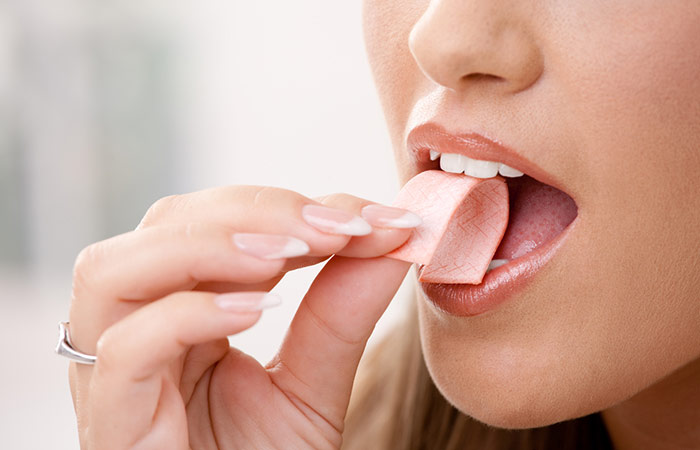
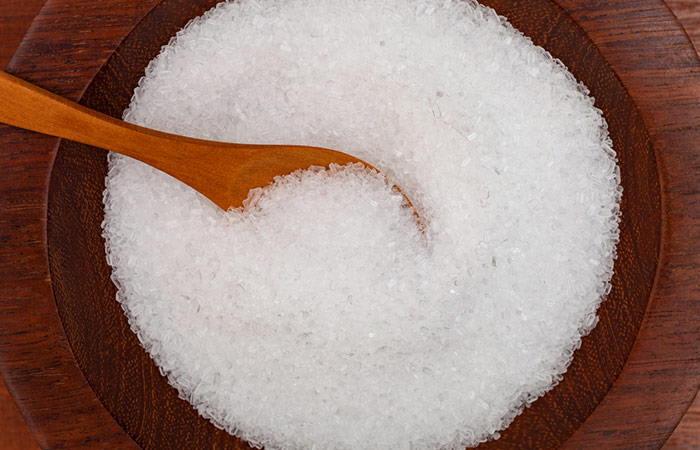
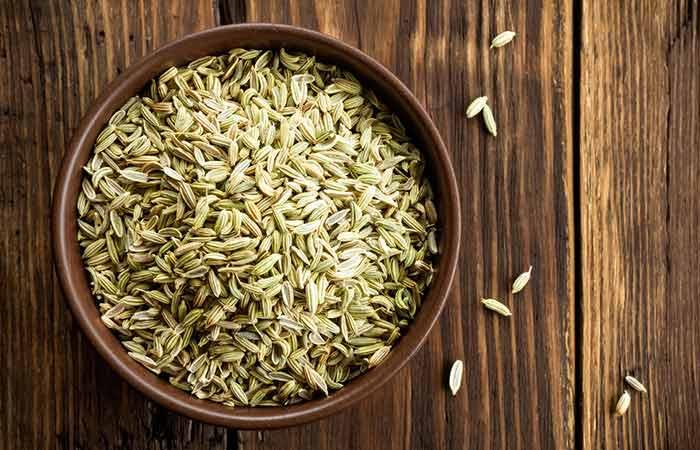
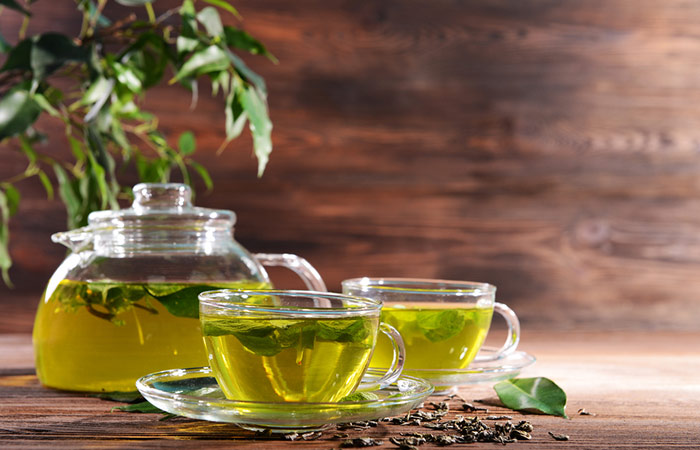

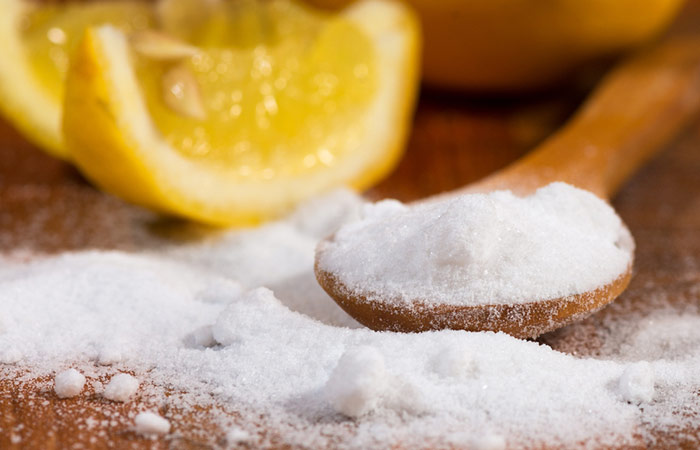
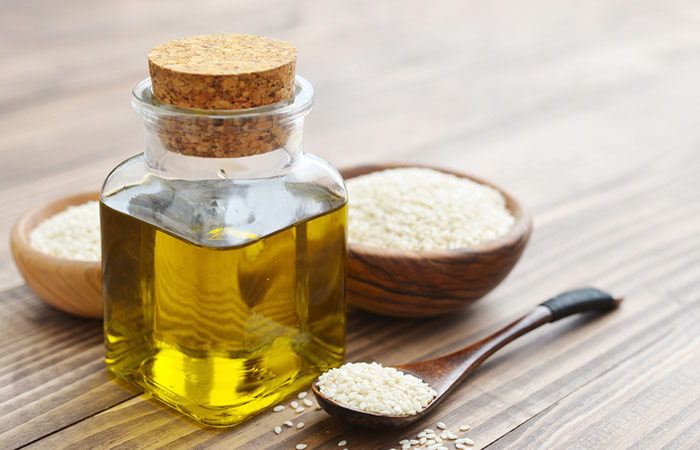
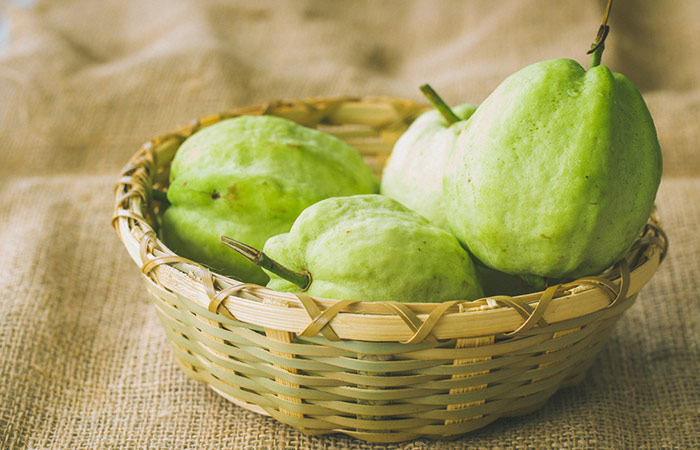
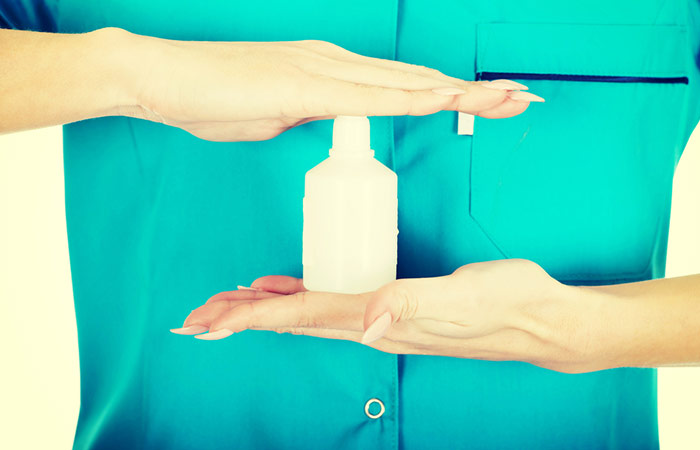
Comments
Post a Comment